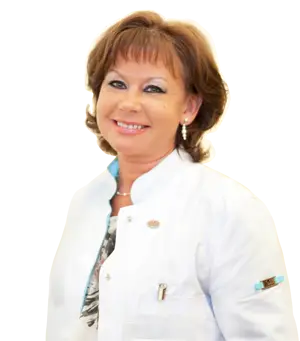Cardiac valve bioprosthesis
When the heart is working normally, we do not notice it. Any disturbances in the normal functioning of the heart muscle very quickly make themselves felt - there are pains, shortness of breath, the inability to cope with stress normally. Valvular heart disease is one of the causes of heart ailments.
The heart consists of four chambers, which are separated by valves. The most powerful section that pushes blood into the aorta and other large vessels is the left ventricle. The left ventricle is separated from the aorta by the aortic valve. When the valve is closed, the ventricle fills with blood, then the valve opens, and the ventricle pushes blood into the vessels, from where it flows to the internal organs. After the ventricle has contracted, the valve closes again to cycle again. Many heart defects are associated with poor valve function. The most commonly affected are the aortic and mitral valves. If the valve does not close properly, some of the blood, instead of entering the large vessels, returns back to the heart through the loosely closed opening. This damage to the valves is called "failure". If the valve does not open well, the heart has to work with great strain to push blood through the narrow opening — a situation called stenosis. In both cases, there are signs of heart failure - shortness of breath appears even with slight movement, swelling, discomfort in the heart, habitual loads become unbearable. With stenosis (narrowing) of the valve, a person may not feel anything for a long time, but the risk of sudden cardiac death in such patients is much higher than the population average.
In children, valve changes are most often congenital. In adults, valves "deteriorate" with age, when calcium begins to be deposited on the valves. Because of this, they become less elastic and do their job worse. Often the valves are affected in rheumatism, and the consequences of a rheumatic attack can be felt after many years.
In order to assess the operation of the valve, echocardiography is performed - an ultrasound examination of the heart. In this study, the doctor necessarily evaluates several parameters - the size of the hole through which the heart pushes blood, the divergence of the valve flaps, and measures the pressure in the chambers of the heart. Based on the results of this study, the doctor of functional diagnostics gives an opinion on the degree of damage to the valve. In case of valve lesion of 3-4 degrees, consultation with a cardiac surgeon is necessary.
When the valve cannot work normally, an operation is performed to replace it - valve replacement. During the operation, the heart surgeon removes the damaged valve and replaces it with a new one. Valve prostheses are of two types - mechanical and biological. Modern biological valves are made from porcine valve or bovine pericardium. Mechanical valves are composed of metal, carbon and synthetic materials. Mechanical prostheses are more durable, but they require lifelong medication to maintain low blood clotting. Blood tests should be done regularly while taking these drugs. Without medication, blood clots often form on the valves, which can cause serious complications. There is no need to take medications after biological prostheses are installed. The main disadvantage of biological prostheses is the limited working life. 15 years after installation, the processes of calcium deposition begin on them, which lead to a deterioration in the operation of the valve. In Russia, mechanical valves are more often installed. In Europe, after 65, they prefer to put biological.
The operation is carried out with the connection of a heart-lung machine - when the surgeon works with a valve, instead of the heart, a special device provides blood circulation. During the intervention, agents are used that protect the heart and blood vessels from damage. The operation is performed under general anesthesia. Its duration may vary, but usually it does not exceed 3 hours.
The operational risk depends on the age, general condition of the patient, the presence of concomitant diseases and the degree of valve damage. After the operation, the patient is transferred to the intensive care unit, where doctors and nurses monitor his condition around the clock for 2-3 days. The main indicators of the work of the heart, blood vessels and internal organs are constantly monitored. The patient wakes up 2-3 hours after the operation, the next day the doctors are allowed to sit down, and the next day - get up. On the third day, the patient usually returns to the ward.
Before deciding on an operation, you must definitely undergo a comprehensive examination in order to evaluate the work of many organs - lungs, kidneys, liver and consult a therapist. The doctor will determine if there are any contraindications to the operation.
More than 30 years of experience in prosthetic heart valves indicates that the duration and quality of life of operated patients is much better than in patients without surgery with a natural course of the disease. Most of the operated patients quickly return to normal life, work and do fitness.
At JSC «Medicine» (clinic of academician Roytberg) we use high quality biological valves of the latest generation from Edwards.
Here you can consult in advance with a cardiac surgeon who will perform the operation. Today there is no need to travel abroad to receive modern treatment in comfortable conditions - just contact the Medicine Clinic. After treatment, patients have the opportunity to undergo a specialized rehabilitation program, which helps to maximize the quality of life and to join its normal rhythm.
We invite you to sign up for a tour of the clinic, during which you can meet the doctors of the hospital and ask them questions.
In JSC "Medicine" (Academician Roytberg's clinic) you can consult in advance with highly qualified cardiac surgeons who perform bypass surgery.
Doctors







